Global Lens Reflections on life, the universe, and everything
Trouble in Paradise
Hawaii’s Susannah Wesley Community Center provides support for victims of human trafficking
By Paul Jeffrey
Published by response magazine in September 2012
Singha Naubon was tired of working hard and barely surviving. A native of Isan in the dry northeast of Thailand, the country’s poorest region, Mr. Naubon and his wife Thamonwan struggled to grow rice on their small farm, while he worked construction jobs when he could to supplement their income. Mr. Naubon dreamed of traveling to where his hard work would earn real money that he could send home. Then one day in 2005 he heard about a company that was soliciting workers to go abroad, so he took the bus to the city to offer himself. Representatives of Global Horizons, an international labor contractor, told him he’d have to come up with $20,000 to cover the initial costs of transportation and paperwork. He and Thamonwan talked about it for weeks, finally deciding to mortgage their farm to a bank at exorbitant interest rates. They also borrowed from both of their parents in order to finally come up with the necessary cash. Mr. Naubon handed over the money, and within days he was harvesting pumpkins in Michigan.
Crowded at night into a small house with dozens of other Thai workers, Mr. Naubon worked days amid the pumpkins and after a couple of weeks sent his first check home. Yet it would be his last for a while. After a month in Michigan, the company took him to Colorado, where he worked on a pig farm. But most days there was no work. If he didn’t work he didn’t get paid, so after a week he asked to be transferred to Hawaii, where he had heard the pay was better. Global Horizons resisted, but Mr. Naubon insisted. “I had a lot of debt, and I wanted to go where I could earn money to pay it back,” he told response.
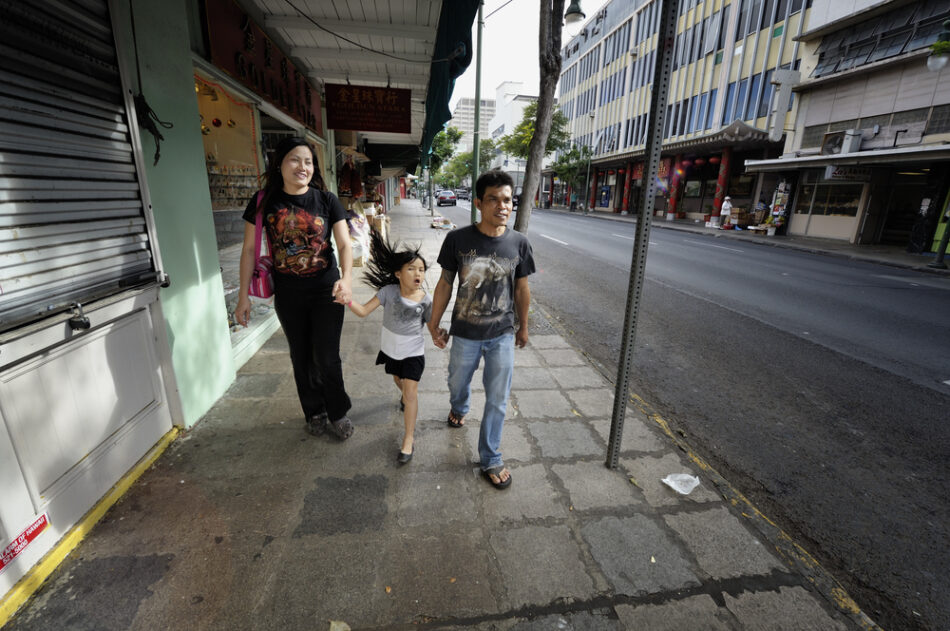
The company finally relented, and Mr. Naubon came to Hawaii to harvest eggplant, tomatoes, cabbage and bananas. He resumed sending money home, although he said Global Horizons was often weeks late in depositing his earnings. After nine months, the company informed him there was no more work because of a problem with his H-2A visa, a temporary permit to work in the United States granted to agricultural workers in areas where sufficient workers cannot otherwise be found. Mr. Naubon’s expenses for food and sharing a crowded house didn’t stop, however, so he finally found work on his own as a construction helper and a cook’s assistance in a Thai restaurant. Global Horizons–to which he had paid a fortune–had simply abandoned him.
Mr. Naubon’s story takes a turn for the better when he meets an outreach worker from the Susannah Wesley Community Center who listened to his story, then helped him file a request with the U.S. government for certification as a victim of human trafficking.
Legacy of caring for immigrants
The Susannah Wesley Center has its origins in the middle of another immigrant wave, when in 1899 the Woman’s Home Missionary Society, a predecessor to United Methodist Women, sent a mission worker and $500 to help women and children who were struggling with exploitation after immigrating to Hawaii to work in the expanding fields of pineapple and other export crops. Plantation owners brought workers in successive waves from China, Portugal, Germany, and Korea, the differences in language inhibiting the ability of workers to communicate with each other and thus resist the divide and conquer tactics of the landowners. That first missionary, Ella Holbrook, taught English to immigrant women, an important step toward building community and solidarity within the immigrant community.
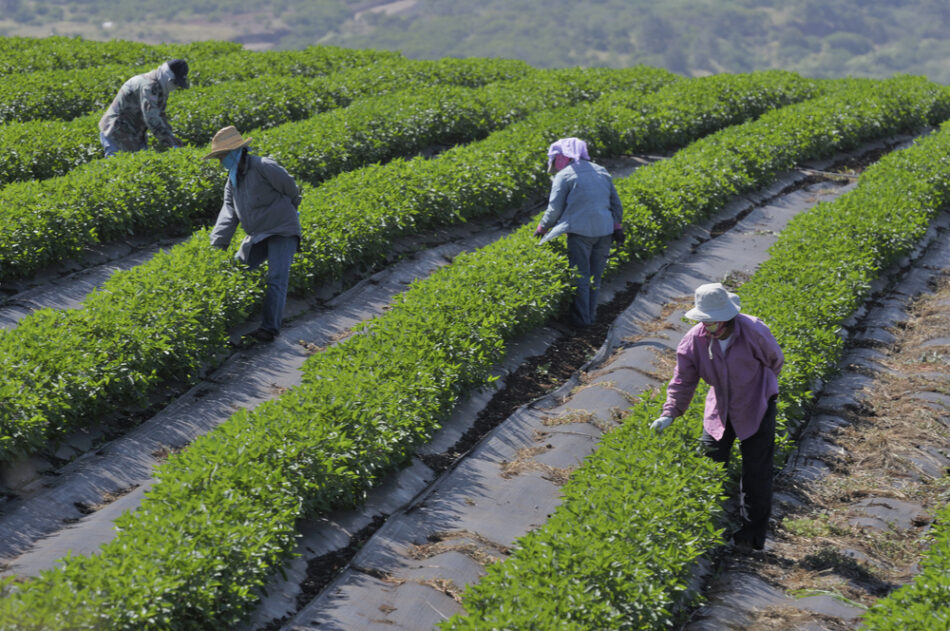
Holbrook’s ministry eventually opened an orphanage, and over the years what eventually grew into the Susannah Wesley Center continued to help new immigrants to survive in Hawaii. In recent years, new populations include Thais, Vietnamese and Laotians, as well as families escaping islands in Micronesia that were ravaged by U.S. atomic weapons testing.
United Methodist Women in Hawaii have long been close allies and supporters of the ministry. Carolyn Steuer, the Hawaii District president of United Methodist Women, is on the Susannah Wesley Center’s board of directors, and feels affinity for the new immigrants assisted by the Center.
“My grandparents came to the United States in the 1870s. They were farmers in Germany, but there was no longer any land available to them there,” she said. “Some of the new arrivals here have come for the same reasons, and their commitment to learning and making a better life for their children is just like that of my grandparents.”
Workers like Singha Naubon, however, didn’t come to stay. His plan was to make money and then go back home, using his savings to buy more farmland or build a more sturdy home for his family. Yet he got caught in an international network of exploitation that makes a handful of people very rich, while trapping poor families in a web of debt and humiliation.
“We’re based in the community”
The outreach workers of Susannah Wesley Center were familiar with human trafficking, because they were assisting two Korean women who’d been brought to Hawaii to work in the Honolulu bars that peddle sex to tourists and military personnel. When the outreach workers started listening to Mr. Naubon and other Thai men who’d been brought to Hawaii by Global Horizons, they knew something similar was happening. Instead of sex trafficking, it was illegal labor trafficking.
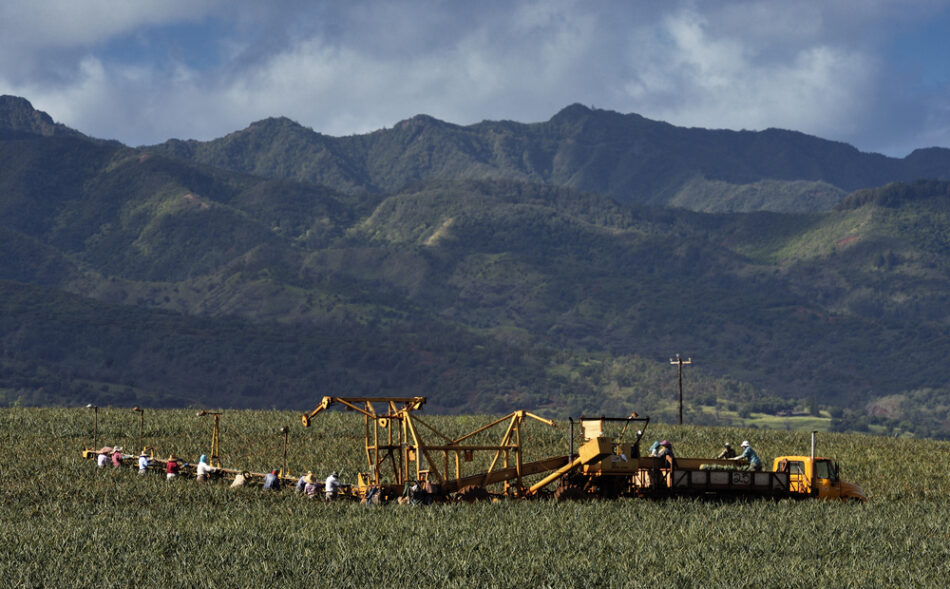
“We got involved with trafficking victims because we’re based in the community. Our workers are out where the people are, listening to them,” said Ronald Higashi, the Center’s executive director.
Because it participates in an inter-agency task force on human trafficking, Susannah Wesley Center staff knew who to call, and within days agents from federal law enforcement and immigration agencies came to the Center to meet the Thai victims. The Center provided translators and brought in volunteer attorneys to represent the men. The federal agents were impressed by what they heard, and work got underway to get the Thai men certified as trafficking victims and then granted T-1 visas, which give trafficking victims four years to remain in the U.S., with permission to work, provided they assist law enforcement officials in investigating and prosecuting those responsible for their trafficking.
As federal officials listened to the Thai workers and started building a case against Global Horizons, two Hawaiian farmers, Mike and Alec Sou, the owners of Aloun Farms, were charged in 2009 with forced labor and visa fraud for bringing 44 Thai workers to Hawaii after charging them between $16,000 and $20,000 each. The Sous, immigrants themselves, were trying to cut costs by eliminating the “middle man”–companies like Global Horizons–and doing the recruiting themselves. But if the workers they brought from Thailand complained of low pay or bad living conditions, they were threatened with deportation, prosecutors said. Most of the Thais had mortgaged their homes and properties to pay recruiting fees, and they feared failure to pay back the loans would lead to the loss of their homes or even worse consequences from financial gangsters back home.
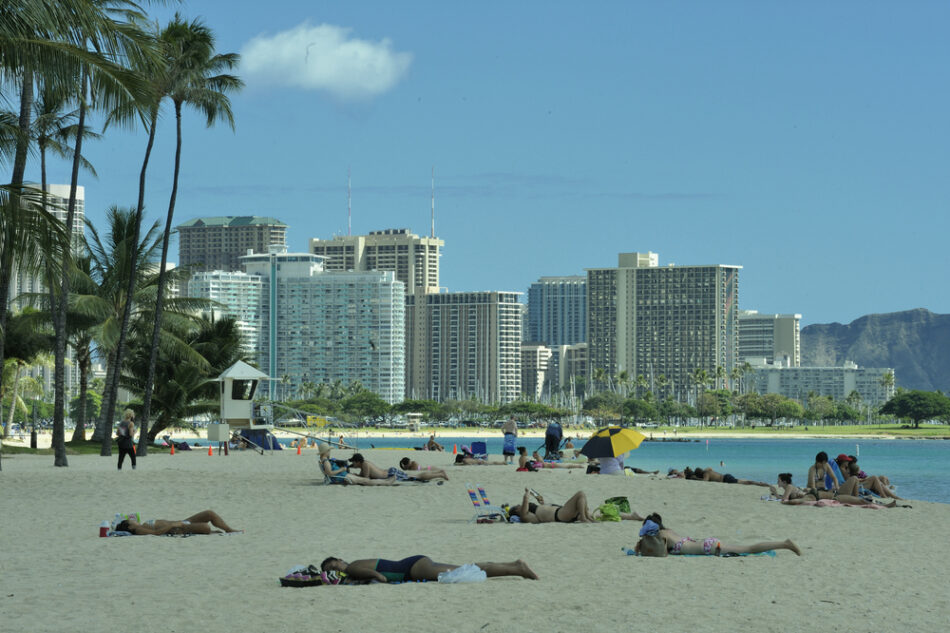
In the courtroom, as well as in the public debate about the case that quickly ensued, the politically well-connected Sous argued that there was no physical coercion, that the workers were free to leave the farms whenever they wished. The Sous’ defenders said it couldn’t be slavery if there were no chains. Yet Wayne Tanaka, a legal consultant to the Honolulu-based Pacific Survivor Center, told response that people can be enslaved even without physical restraint.
“The power and control the traffickers enjoy are much more powerful than chains. They leverage the huge debts these workers acquired in their home country into psychological control here. The workers are very isolated, with limited language skills, and many don’t even know how to read a street sign. So how are they going to figure out what to do if they get out? They don’t know how connected the traffickers are, or what will happen to their families back home if they walk away,” Mr. Tanaka said.
The Aloun Farms case fell apart, however, when the chief federal prosecutor conceded she inaccurately told grand jurors that the workers couldn’t be charged recruiting fees when they traveled to Hawaii in 2004. The law making that illegal didn’t take effect until 2009. The judge dismissed the case with prejudice, which means the Sous could not be charged again.
The decision left the workers in a sort of legal limbo, and also raised questions about the bigger case pending against Global Horizons, the Los Angeles-based labor recruiting company which the same prosecutors alleged had kept more than 600 Thai workers–including Singha Naubon–as indentured laborers on farms in Hawaii, Washington and other states. It’s the largest human trafficking case in U.S. history, and so far three defendants have pleaded guilty and agreed to testify against Global Horizons CEO Mordechai Orian at trial, which has been repeatedly postponed and is currently scheduled to begin in September 2012.
From victim to survivor
While the wheels of justice turn slowly for some, and have stopped entirely for others, outreach workers from the Susannah Wesley Center helped the Thais–and later workers that Global Horizons brought in a similar fashion from Vietnam–to find jobs, get dental care, and learn English. These first steps toward self-reliance, said Dominic Inocelda, the Center’s clinical administrator, are critical in “helping people move from being a trafficking victim to becoming a trafficking survivor.”
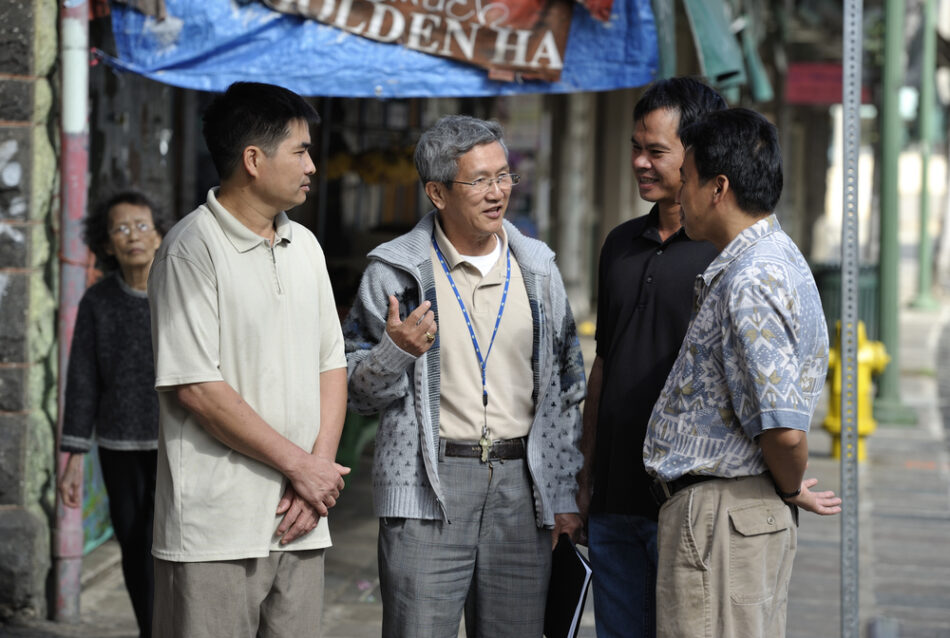
That help doesn’t come cheap, and the Susannah Wesley Center’s budget was soon stretched thin. “When Global Horizons brought workers to Hawaii, we were soon deluged with calls from people in the field asking for help,” Mr. Inocelda said. United Methodist Women gave the Center an emergency grant of $25,000 to help cover the new costs.
Hawaii isn’t a cheap place to live, and trafficking survivors have struggled to survive economically. Many of the Thais found a place to live on small farms, often owned by other Thais, tucked into the verdant valleys of Oahu. They are paid for their work under the table, often at less than the minimum wage, and their housing conditions aren’t optimal. But their legal status is stable for a while and they’re free to do what immigrants here have done since Ella Holbrook’s time–work hard and slowly move up the socio-economic ladder.
Under the provisions of the T-1 visa, trafficking survivors can bring their family to the United States and eventually apply for permanent residency. Singha Naubon worked two jobs, sending money home to pay down his debt but also saving to bring his wife and daughter to Honolulu in 2011. Susannah Wesley helped their daughter, 7-year old Thanisorn, complete the medical steps necessary to enroll in first grade. Thamonwan Naubon started working part-time in a restaurant, though it’s an informal “job training” program where she makes less than minimum wage–the exploitation of foreign workers simply doesn’t stop. She also enrolled in an ESL class and started learning English, though not as fast as her daughter. In fact, she says, when she tries to help her daughter with her school homework, the girl continually corrects Ms. Naubon’s pronunciation. “She is our English dictionary with legs,” the mother said.
SIDEBAR: Blaming the victims
Global Horizons brought Singha Naubon and hundreds of other Thai workers to the U.S. under the government’s H-2A visa program. It allows agricultural employers who anticipate a shortage of domestic workers to bring non-immigrant foreign workers into the country to perform agricultural labor or services of a temporary or seasonal nature. Those workers are supposed to enjoy the same legal protections as U.S. workers.
According to Kathryn Xian, the executive director of the Hawaii-based Pacific Alliance to Stop Slavery, the common wisdom that foreign workers are needed because U.S. citizens won’t take difficult agricultural jobs contains some truth.
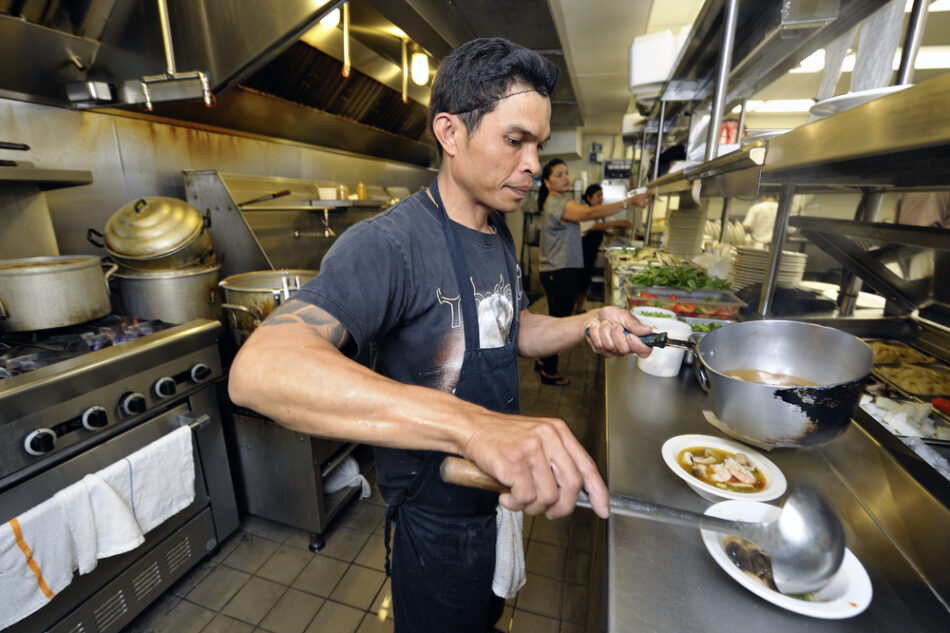
“If you treat them like slaves and make them build their own shacks without plumbing or electricity or running water or toilets, and make them spray pesticides without protection, then no one in their right mind would work in those conditions,” she told response. “But when you give them a living wage, then American citizens will work on the farms, and they do. We have several organic farms here that are successful, that make a good profit. But some people are just greedy and will exploit other humans for a buck.”
Ms. Xian, a prominent activist against sex trafficking, warns that combating modern day slavery means confronting powerful people.
“A lot of powerful people are in control of the subjugation of people for sexual labor, and labor trafficking is no different. It’s going to be a jarring experience when we eventually learn who the traffickers are, because they don’t look like your typical criminal. They’ll be clean cut and donate to charities and go to church,” she said.
As the Aloun Farms case showed, public support for alleged traffickers was easy to mobilize. Not so those who have been trafficked. Ms. Xian says they’re often blamed for their plight.
“In conservative communities, both kinds of victims are stigmatized. Sex trafficking victims are often identified as prostitutes, while labor trafficking victims are often characterized as illegal immigrants who just got duped by entering into a bad contract. In both cases, we blame the victim,” she said.
SIDEBAR: Divide and conquer
Jose Guadalupe Perez-Farias came to the United States from Mexico in 1970, and began to follow the crops up and down the Pacific coast. He harvested grapes, apricots and cherries, at time sleeping at night in highway culverts to avoid being caught up in government immigration sweeps. In 1996, he settled with his family in Washington’s fertile Yakima Valley, where he continued pruning and picking apples and pears interspersed with work on a dairy farm.
In February 2004, Mr. Perez-Farias went to work for Valley Fruit Orchards. Within a few months, he said the first contingent of Thai workers appeared in the valley. “They kept them shut up in houses while we were working. We know something about them because they took some of us workers to repair the houses where the Thais were living. The houses didn’t have beds or windows. They kept them like animals. They didn’t have toilets, so they had to come out and use the portable toilets that we had in the fields,” Mr. Perez-Farias told response.
When the pear harvest got underway in August of that year, Mr. Perez-Farias and other Latino workers argued with the owners of Valley Fruit Orchards over how much would be paid per wooden bin of harvested fruit. “They only wanted to pay $13 a bin, but because the pears were so small that season, we said we needed to get at least $19 per bin. They refused, and we hung around until about 11 am that day, but by then the foreman was so mad it seemed he was going to bleed from the face. He said, ‘Everyone leave! I’ve got other people who will pick tomorrow!’ We didn’t want to leave, because we have families to feed and we take pride in our work. But they wanted us to quit,” he said.
The next day several dozen Thai workers were brought in. Mr. Perez-Farias said they did substandard work, and the grower lost money on the harvest.
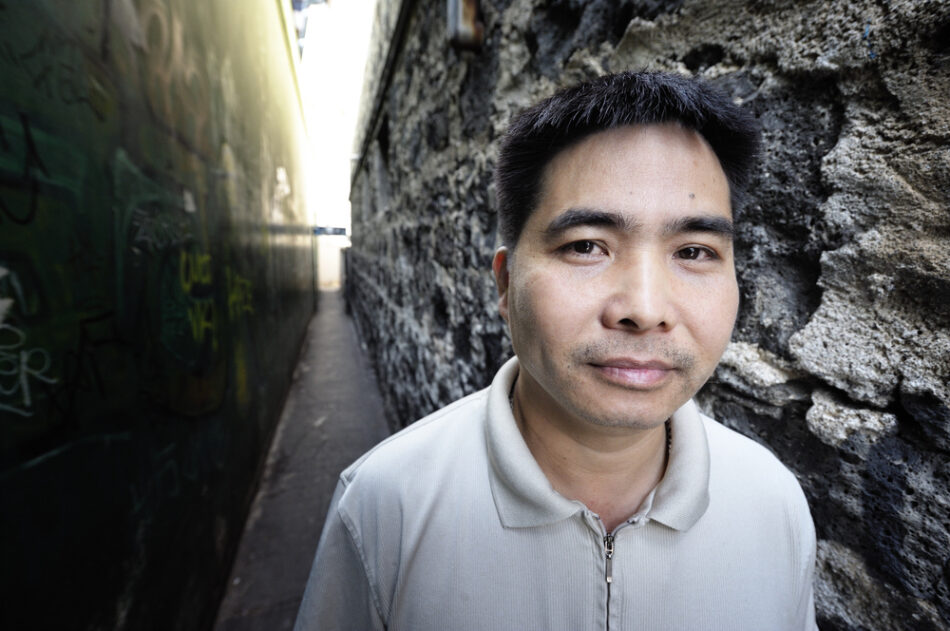
“For the people who bring the foreigners here, it’s a good business. The owners of the orchards didn’t know the Thais didn’t know how to do the work. Both the Thais and the growers were tricked. And we who have struggled all our life to get to where we are in our profession, all of a sudden it was all taken away,” he said.
He found other odd jobs in a packing house and a factory assembling manufactured housing. But angry about the way he’d been deprived of his work, in 2006 he joined a class action lawsuit against Global Horizons and two local growers. The workers claimed they were fired and replaced by the 175 Thai workers that Global Horizons brought to the Yakima Valley. In 2007, a U.S. District Court judge awarded Mr. Perez-Farias and some 600 other Yakima Valley farmworkers more than $1.8 million in damages for federal labor law violations. The size of the judgment was subsequently reduced by a second judge, but then reinstated by a three-judge panel. The amount of the judgment is under review by the Washington State Supreme Court.
One of the elements of the farmworkers’ suit was that Global Horizons and the growers had discriminated against the Hispanic workers because of race. In a 2007 deposition for the court case, the former operations manager for Global Horizons, Ebony Williams, testified that Global Horizons CEO Mordechai Orian set a tone for the operation by characterizing local Hispanic workers in a bad light.
“He would just make it seem like . . . they’re all going to be illegal. They’re all going to be lazy. They’re drunks. They do drugs . . . These local workers are too much [of a] problem, too many workers’ compensation claims, too many headaches,” she stated.
Such racism played apparently well with some growers, tired of resident workers demanding better wages.
Global Horizons–which in 2006 had its operating license revoked by Washington State after repeated wage and labor violations–used the H-2A visa program to import the Thai workers, but federal regulations forbid H-2A workers being used in a way that would negatively affect the working conditions or income of existing workers.
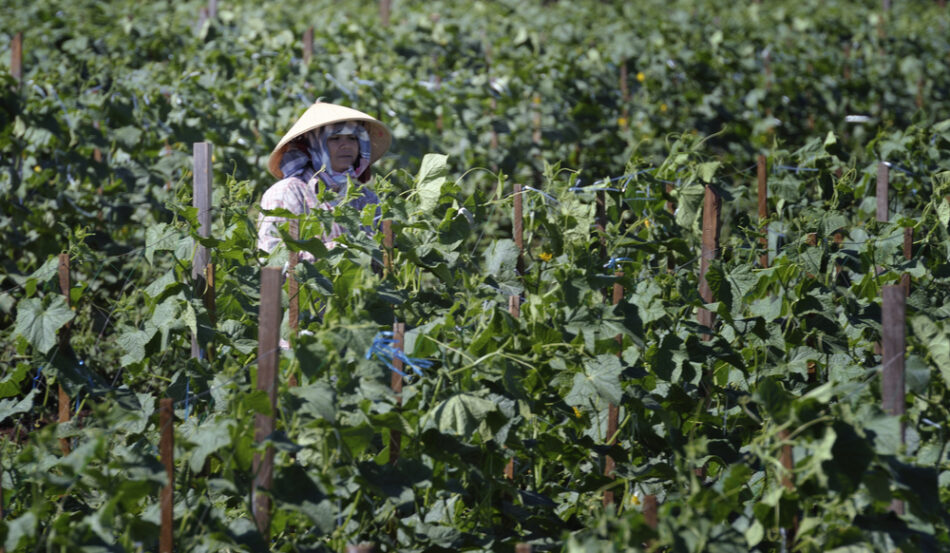
“The H-2A program is fundamentally unfair,” said Lori Isley, an attorney who represents Mr. Perez-Farias. “It deprives workers of their choice of employer, which is a basic human right. The program is set up not to depress wages or working conditions for local people, but that’s precisely what it does.”
The Southern Poverty Law Center, in a 2007 report, said the H-2A program could be viewed “as a modern-day system of indentured servitude.”
The report said that unlike U.S. citizens, “guestworkers do not enjoy the most fundamental protection of a competitive labor market–the ability to change jobs if they are mistreated. Instead, they are bound to the employers who ‘import’ them. If guestworkers complain about abuses, they face deportation, blacklisting or other retaliation. Federal law and U.S. Department of Labor regulations provide some basic protections to H-2 guestworkers, but they exist mainly on paper. Government enforcement of their rights is almost non-existent.”
The Rev. Paul Jeffrey is a United Methodist missionary and senior correspondent of response.